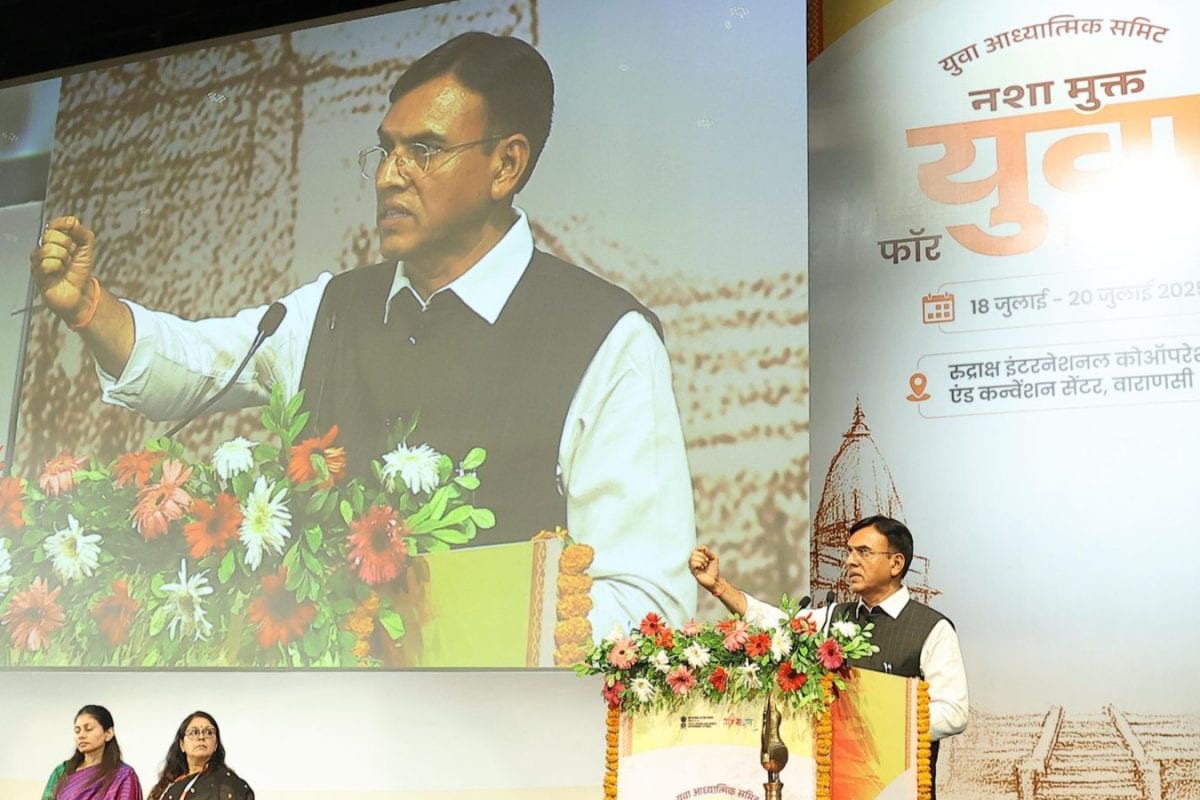

In a significant move to combat drug abuse, India is increasingly turning to spirituality as a powerful tool, with the government actively involving spiritual organizations and leaders in its anti-drug initiatives. Union Minister of Youth Affairs & Sports and Labour & Employment, Dr. Mansukh Mandaviya, has been a vocal proponent of this approach, emphasizing the role of spiritual awareness in building a drug-free society.
The government's commitment is evident in the organization of events like the 'Youth Spiritual Summit' held in Varanasi on July 18-20, 2025. This summit, themed "Nasha Mukt Yuva for Viksit Bharat" (Drug-Free Youth for Developed India), brought together 500 youth delegates from 100 spiritual organizations to discuss and strategize actionable plans for eradicating drug addiction. The summit, convened on the banks of the Ganga, aimed to harness India's spiritual heritage and the power of its youth to create a national movement against drug abuse.
Dr. Mandaviya has underscored that with over 65% of India's population under the age of 35, the youth are the driving force behind national development. He cautioned that substance abuse poses a grave threat to this demographic, hindering their potential and impeding the nation's progress. In response, the government is partnering with NGOs, educational institutions, and spiritual organizations to launch a holistic anti-drug campaign.
The Youth Spiritual Summit featured plenary sessions that explored the psychological and social impacts of addiction, strategies for dismantling drug supply networks, effective grassroots campaigning, and the formulation of a roadmap for achieving a "Nasha Mukt Bharat" (Drug-Free India). The summit concluded with the release of the 'Kashi Declaration,' a document reflecting the collective vision and commitment of youth and spiritual leaders towards a drug-free India. This declaration is intended to serve as a guiding charter for policymakers, civil society organizations, and youth networks involved in drug de-addiction and rehabilitation.
This initiative aligns with the government's broader efforts under the Nasha Mukt Bharat Abhiyan (Drug-Free India Campaign), launched in 2020. This campaign, spearheaded by the Ministry of Social Justice and Empowerment, targets 272 districts across India identified as most vulnerable to drug abuse. The Ministry of Social Justice and Empowerment implements the National Action Plan for Drug Demand Reduction (NAPDDR), an umbrella scheme that takes coordinated action to tackle substance abuse. The Nasha Mukt Bharat Abhiyaan aims to raise awareness about substance abuse through various activities, including programs in educational institutions and community outreach.
Recognizing the seriousness of substance abuse, the Ministry of Social Justice and Empowerment implements schemes for the prevention of alcoholism and substance abuse, focusing on counseling, treatment, and rehabilitation of addicts. The ministry also supports de-addiction treatment facilities such as Integrated Rehabilitation Centres for Addicts (IRCAs), Community-based Peer Led Intervention (CPLI), and Outreach and Drop In Centres (ODICs).
By integrating spirituality into its anti-drug strategy, India aims to tap into the moral and ethical values that can guide individuals away from substance abuse. The emphasis on youth involvement seeks to create a peer-driven movement, where young people themselves become agents of change, promoting healthy lifestyles and discouraging drug use. The collaborative approach, involving government, NGOs, educational institutions, and spiritual organizations, reflects a comprehensive effort to address the complex challenge of drug addiction in India.